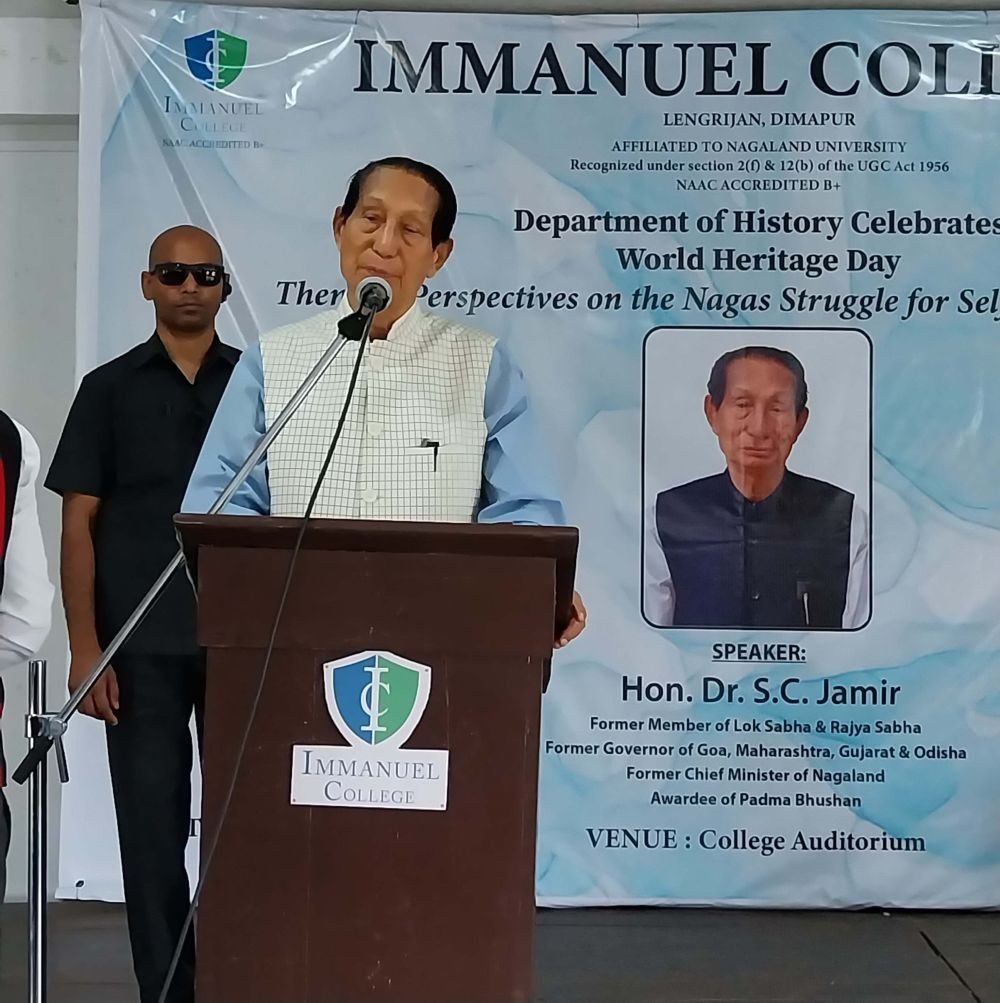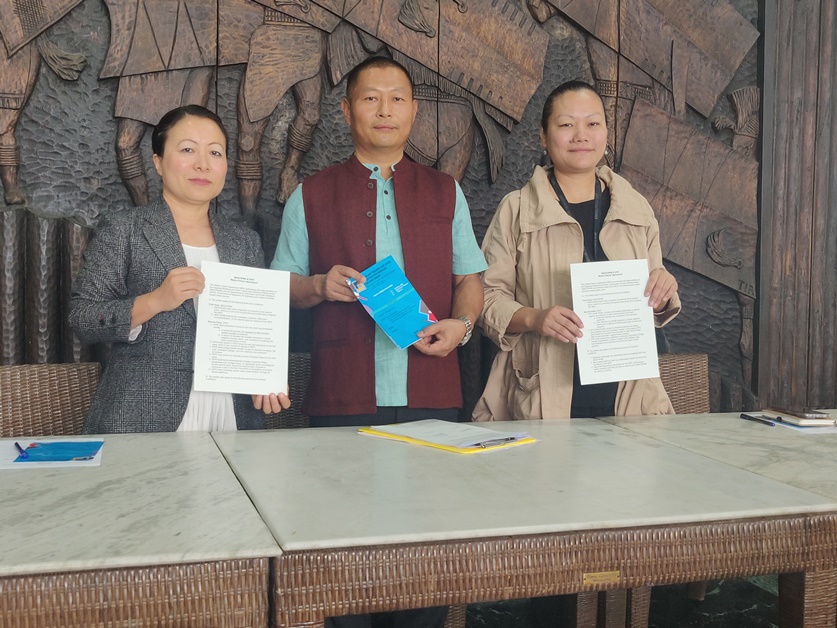For over six decades, the Naga political issue and its associated sovereignty matter have been central to the contemporary narrative of the Naga people. This was stated by SC Jamir
 KRC TIMES NE Desk
KRC TIMES NE Desk

For over six decades, the Naga political issue and its associated sovereignty matter have been central to the contemporary narrative of the Naga people.
This was stated by SC Jamir, a five-time chief minister of Nagaland and former governor of four Indian states.
Jamir made this observation while delivering a lecture at a World Heritage Day event organized by the history department at Immanuel College in Dimapur city of Nagaland on Thursday (April 18).
The lecture, themed “Naga Political Struggle vis-à-vis Contemporary Political Realities”, prompted Jamir to delve into the multifaceted aspects of the Naga political landscape.
He emphasized that while sovereignty remains a crucial aspiration, focusing solely on this aspect has hindered progress in other vital domains within Nagaland.
Jamir stressed on the need for a holistic approach to address the challenges facing the Naga society.
He highlighted the significance of economic development, education, technological advancements, socio-cultural growth, and robust infrastructure alongside the pursuit of sovereignty.
Expressing concern over the neglect of crucial issues, Jamir questioned the lack of discourse on economic, educational, and social challenges prevailing in Nagaland.
He urged for a comprehensive understanding of the present predicaments by delving into the historical genesis of the Naga political struggle, devoid of biases towards any particular political faction.
Reflecting on the evolution of the Naga political movement, Jamir acknowledged the fragmentation of the once-unified Naga entity into various groups.
He underscored the significance of initiatives like the Naga People’s Convention (NPC) and the subsequent formation of Nagaland state through the 16-point Agreement, which he deemed essential for safeguarding the Naga identity amidst existential threats.
Advocating for adaptability to contemporary political and social realities, Jamir emphasized the importance of embracing change to ensure the survival and prosperity of the Naga people.
He urged for a departure from dwelling on past grievances and instead advocated for active participation in India’s economic progress.
During the interactive session following the lecture, Jamir endorsed the sanctity of agreements reached with the NSCN-IM and the Naga National Political Groups (NNPGs).
He stressed the importance of endorsing these agreements and called for the Nagaland assembly to pass resolutions in support.
Jamir emphasized the necessity of transcending tribal boundaries and embracing a collective Naga identity.
He lamented the divisiveness fuelled by tribalism and emphasized the need for unity to overcome internal conflicts and advance the Naga cause.





